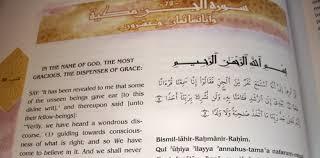Scholar Underlines Moral Responsibility of Quran Translators

This is according to Professor Maha Tahir Eesa, a University of Al-Qadisiyah, Iraq, professor, while presenting his paper at the International Conference on Quran Translation here in Tehran.
The paper is titled “Glorious Qur’an Meanings & Translators' Dilemma: Ethics or Creed”.
“Translation of the Holy Qur’an is gravely serious if measured against the translator's professional faithfulness and human ethics and responsibility,” the scholar said.
“The translation is directed to or received by those who are either Muslim or non-Muslim each with different interests and concerns.”
“Non-Arab Muslims should know all about their religion for rituals and worship, non-Muslims for other reasons; and for both the first source is the Glorious Quran which should be rendered faithfully. Hence, an authentic translation should be produced for those who do not know Arabic,” Tahir Eesa added.
The Iraqi scholar noted that hostile views toward Islam are not new but deeply rooted in the past and perhaps one of the reasons for having such views is the spread of mis-renderings to other languages whether purposefully or not, “which holds translators morally responsible”.
Faithfulness strategies and logical reasoning in understanding the source text may lead to an authoritative translation of the meanings of the Glorious Quran that becomes a source of unification and not difference among Muslims, Easa went on to say.
The first International Conference on Quran Translation was held in Tehran on December 14-17.
It was jointly organized by Allameh Tabatabaei University and the Islamic Culture and Relations Organization (ICRO).
Quran translators from 10 countries, including Russia, France, Pakistan, Spain, China, and the Republic of Azerbaijan took part at the international conference.



